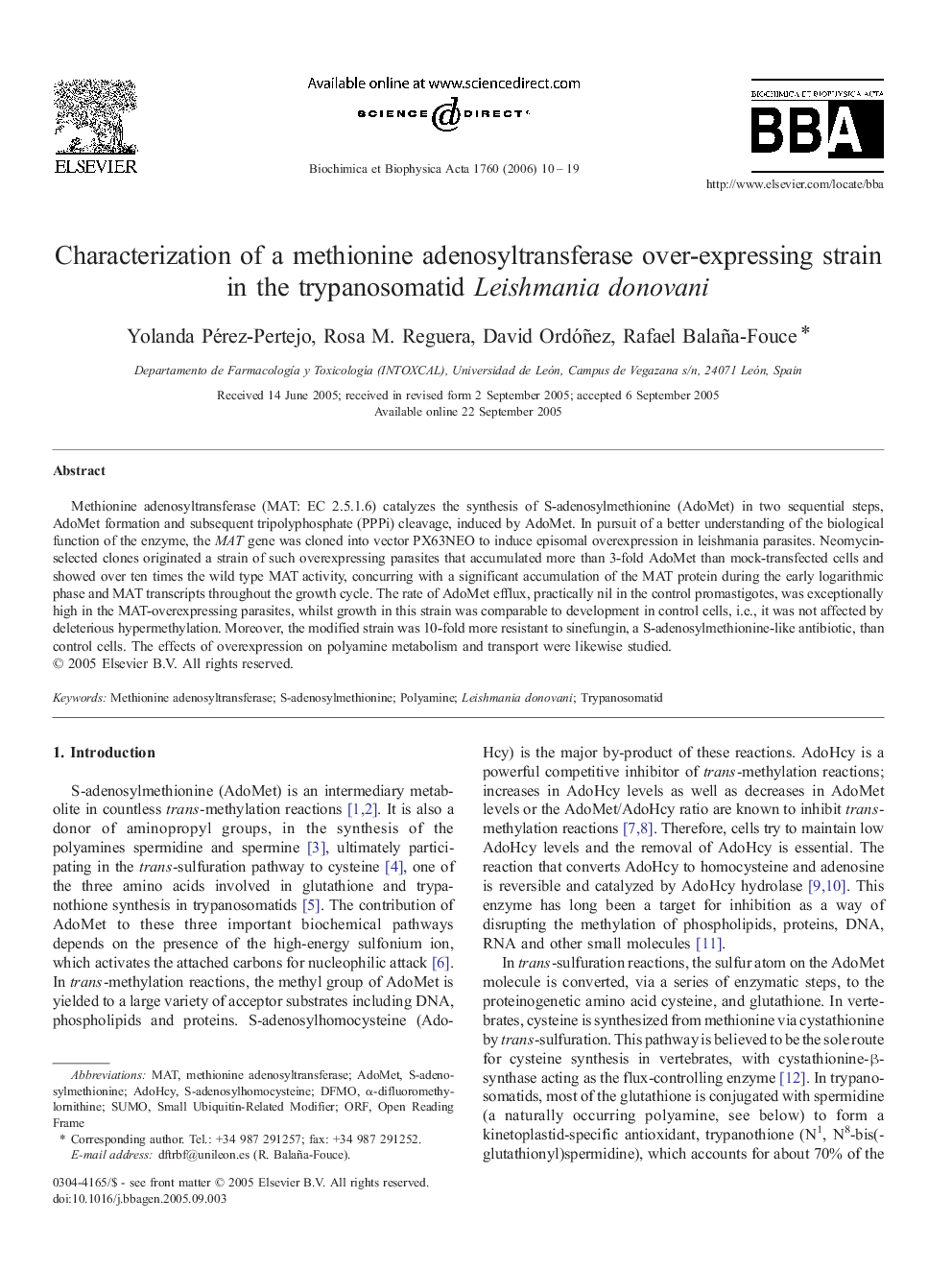| Article ID | Journal | Published Year | Pages | File Type |
|---|---|---|---|---|
| 1948898 | Biochimica et Biophysica Acta (BBA) - General Subjects | 2006 | 10 Pages |
Methionine adenosyltransferase (MAT: EC 2.5.1.6) catalyzes the synthesis of S-adenosylmethionine (AdoMet) in two sequential steps, AdoMet formation and subsequent tripolyphosphate (PPPi) cleavage, induced by AdoMet. In pursuit of a better understanding of the biological function of the enzyme, the MAT gene was cloned into vector PX63NEO to induce episomal overexpression in leishmania parasites. Neomycin-selected clones originated a strain of such overexpressing parasites that accumulated more than 3-fold AdoMet than mock-transfected cells and showed over ten times the wild type MAT activity, concurring with a significant accumulation of the MAT protein during the early logarithmic phase and MAT transcripts throughout the growth cycle. The rate of AdoMet efflux, practically nil in the control promastigotes, was exceptionally high in the MAT-overexpressing parasites, whilst growth in this strain was comparable to development in control cells, i.e., it was not affected by deleterious hypermethylation. Moreover, the modified strain was 10-fold more resistant to sinefungin, a S-adenosylmethionine-like antibiotic, than control cells. The effects of overexpression on polyamine metabolism and transport were likewise studied.
